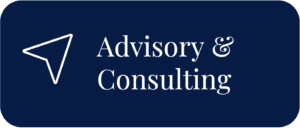It’s in the nature of procurement people to always be on the lookout for the best deal. Given the rate of employee churn, it seems we carry this ethos through to our careers. This presents a problem for procurement teams trying to develop capability.
When asked what the most important factor is in achieving supply chain goals, 81% of respondents say talent. But if the talent (potential or realised) keeps walking out the door, how do procurement teams ever really get a roll on?
When it comes to building capability, it’s not only about building talent. It’s also about retaining it. Today, we’re looking at three ways in which you can do both so that your team can see long and sustained success.
3 ways to build talent
1. Identify the gaps
In order to develop capability, you have to know which procurement skills you have – and which ones you lack. The gaps need to be identified across the team and the individual. Resources are precious; they can’t be wasted on broad-based training programs that cover ground already familiar to the recipient.
Supplier management, negotiation, contract management, IT solution – know which areas need to be targeted so you can focus your efforts and maximise your chance of success.
2. Utilise modern training programs
The best way to build procurement talent is to hire for behaviours (attitude, mindset, and values) and teach skills. Hiring individuals with the right attitudes and attributes is crucial for cultivating a successful procurement team. People who possess qualities like adaptability, problem-solving, collaboration, integrity, and a passion for continuous learning are likelier to thrive in the dynamic and complex procurement world.
On the other hand, skills can be taught and developed over time. Procurement practices, technology, market trends, negotiation strategies, and supplier management techniques constantly evolve. By investing in training and development programs, organisations can equip their procurement professionals with the necessary skills to effectively excel in their roles and adapt to changing circumstances.
So, develop the necessary procurement skills in-house, rather than try and recruit from the outside. This is because hiring processes are notoriously unreliable (and costly) and developing talent in-house also creates loyalty (i.e. retention).
Academy of Procurement revolutionises upskilling through a sophisticated blended learning approach. Our unique methodology combines eLearning, face-to-face training and on-the-job coaching to deliver training that engages, motivates, and truly meets your needs. With a comprehensive module selection, participants can focus on relevant areas, avoiding wasted time on what they already know or don’t need. Our goal is to ensure effective and targeted training that hones their skills. Say goodbye to traditional one-size-fits-all methods and embrace a personalised, impactful learning experience.
3. Leadership with emotional intelligence
A culture of learning and development is fostered from the top down. In order for team members to focus on improving their development areas and commit to strengthening them, they must see leaders who possess self-awareness, recognise their own strengths and weaknesses, and understand how their emotions influence the team. Leaders who possess emotional intelligence promote a growth mindset within the team. They believe that everyone can learn and improve, which motivates team members to strive for continuous development.
Create an environment in which everyone is committed to striving for more. The last thing a capable team wants is workers who try to mask their weaknesses because they feel they make them a liability.
3 ways to retain talent
1. Career Development and Growth Opportunities
Procurement professionals value opportunities for career advancement and growth. Establish clear career paths within the procurement team, outlining the skills and experiences required to progress from one role to the next. Offer development programs, workshops and training sessions that focus on both technical and leadership skills as we mentioned above, but also provide opportunities for cross-functional collaboration and exposure to different areas of the organisation. Encourage employees to set personal goals and provide guidance and support to help them achieve their objectives.
2. Recognition and Employee Engagement
Recognising and appreciating the contributions of procurement team members can significantly impact their motivation and loyalty. Implement a formal recognition program that acknowledges individual and team achievements, both big and small.
Regularly provide feedback and constructive criticism to help employees improve their performance and feel valued. Foster a positive work environment that promotes open communication, collaboration and a sense of belonging. Encourage employee engagement through team-building activities, social events and opportunities for employees to contribute their ideas and suggestions.
3. Inject flexibility into the work environment
The pandemic transformed how we work with many of us forced to do so from home. Employees found this gave them a better work-life balance. We should take heed of this.
It doesn’t mean creating a permanently remote workplace. It means introducing a level of flexibility, which could involve job sharing, amending start and finish times and, yes, offering remote or hybrid work. It keeps workers fresh, gives them a better chance of attaining their desired lifestyle and – most importantly – treats them like the adults they are, capable of managing their own lives.
They’ll be happier, and less likely to leave.
Drive your capability forward with Academy of Procurement
Assess your organisation’s procurement skills gap with Comprara’s globally recognised Skills Gap Analysis and then close the gap using our sophisticated blended learning. We can target any area in the procurement field, providing recognised and certified education. Get in touch with the team today.








